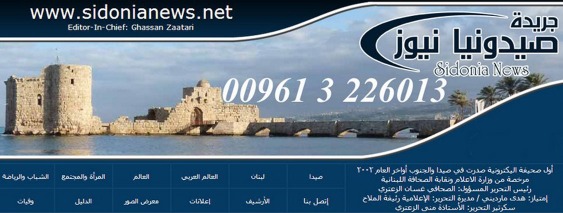جريدة صيدونيانيوز.نت
Sidonianews.net
HWPL: International Educators Design a Peaceful Future...Peace education is introduced in Guatemala, Cambodia, Sri Lanka, and Iraq in cooperation with an international NGO - HWPL
Government ministries in Guatemala, Cambodia, Sri Lanka, and Iraq signed a memorandum of agreement (MOA) with an international peace NGO, HWPL, to implement nationwide peace education in respective countries.
At the peace education session of the 2018 HWPL World Peace Summit held in Incheon, South Korea on 17 September, global educators and policymakers had a discussion on “Looking into a Future of Peace through Peace Education".
About the need for lifetime education, Dr. Barsihannor Zuhri, Dean of Universitas Islam Negeri Alauddin Makassar, pointed out that educational institutions seem unable to uphold the values of tolerance and democracy and prepare for students to be a critical generation with a knowledge and competency base.
“Effective strategy is needed to reduce the violence that often involves students in various educational institutions. One of them is by teaching the importance of ‘love of peace’ from an early age,” he added.
In an effort to promote a culture of peace by peace education, HWPL has introduced peace education for students and citizens by cooperation with 164 educational institutions from 12 countries including the United States, India, Israel, Indonesia, and the Philippines.
In January this year, the Commission on Higher Education (CHED) in the Philippines established a cooperative relationship with HWPL to integrate peace education in the curriculum of state universities and colleges (SUCs).
Dr. Ronald Adamat, Commissioner of the CHED, who signed the agreement back in January, spoke on the expectation to the peace education suggested by HWPL.
“Students would learn to uphold the principle of ‘unity in diversity’ and embrace the differences amongst people. They will be equipped with knowledge, skills, attitudes, and values in conflict resolution and peace work and further encourage them to work for the cessation of wars, hostilities, and disunity.”
On this occasion, Ministry of Education, Youth and Sport of the Kingdom of Cambodia and HWPL signed a memorandum of agreement (MOA) to execute peace education in nationwide in Cambodia.
In this regard, H.E. Rachana Khun, Under Secretary of State of Ministry of Education, Youth and Sport of the Kingdom of Cambodia said “HWPL Peace education is an important part of ‘Global Citizenship Education’. Particularly, the Ministry would like to request HWPL’s assistance in the writing of books on peace education, its teaching methodology, the training of peace educators, and activities to spread a culture of peace in the education sector in Cambodia.”
The host organization, HWPL (Heavenly Culture, World Peace, Restoration of Light), is an NGO affiliated with the UN ECOSOC and DPI engaging in peace-building projects including the establishment of international law for peace and peace education for students.
According to its official website, this forum was intended to create an environment for the feasibility of peace education and present the specific roles of the state, government, and schools for further development of peace education.
At the conclusion of the session, Chairman Man Hee Lee of HWPL urged educators to be good teachers as well as good parents by the reason that they grow the mind of their students in saying, “This time of world is crying out for peace since it is surrounded by wars. The world is developing weapons of destruction rather than developing a culture of peace.
“Children take after their parents and follow the environment. What should the teachers bear fruits from the students? Children should learn peace from their homes and schools then our next generation will be naturally born as peace messengers in the environment of peace.”
2018-10-23






